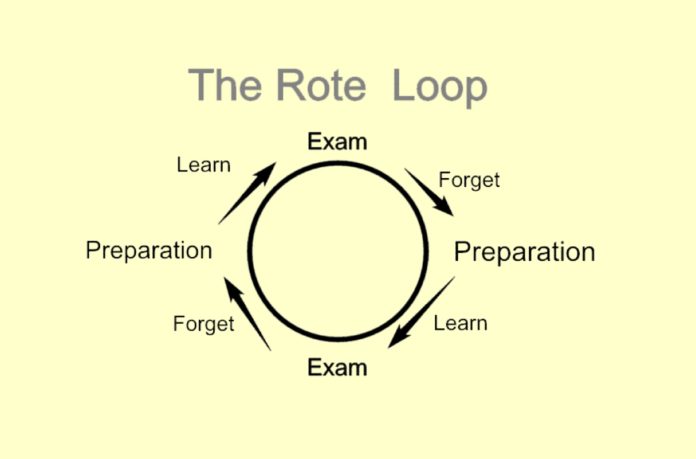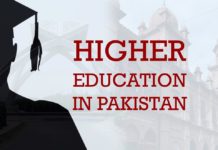Disclaimer: The Eqbal Ahmad Centre for Public Education (EACPE) encourages critical and independent thinking and believes in a free expression of one’s opinion. However, the views expressed in contributed articles are solely those of their respective authors and do not necessarily reflect the position or policy of the EACPE.
Federal Board of Intermediate and Secondary Education (FBISE) had announced SSC-II results on 20th January 2020 after government gave grace marks of 3% for students across the country. Top position holders secured 1097, 1096 and 1095 marks respectively, i.e. just 3, 4 and 5 marks away from the total of 1100.
What do such high marks reflect? Do they indicate that Pakistani students are much intelligent and have a great knowledge of their subjects? Sadly, the answer is in no. Pakistan’s education system encourages rote learning, which has damaging long-term effects. Moreover, marks for practical exams are based on reference and links. There’s no enthusiasm in teaching critical reasoning to students, as well as majority of the institutions lack equipment and resources for performing practicals. This force students to buy ready-made practical notebooks from the market and then they are asked to sign from the teacher or head of the department. The same students practicing rote learning manage to secure high marks.
If students are not benefiting from what they’re learning, what’s the use of such education?
This unfortunate situation has been prevailing since long. Students are not introduced to labs till 17 years of age which is the most important phase in developing their mindset about the research and its importance. The students who are good enough in mugging up are praised and acknowledged by the institutions and teachers. The tuition culture has further deteriorated the creative skills of students. Parents and teachers, both are directly involved in muddling the growing minds. The standard of success and failure has been marks and grades, and the students having creative skills are demoralized by the society. A culture has been nourished where students must have to go through the tuition center, otherwise it is impossible for them to get through this competition of gaining marks.
All this has been affecting mental health of students, and even suicidal thoughts are prevailing among them. Although matriculation marks doesn’t count much but since matric has been considered as a base for college studies, there’s a lot of stress on students to perform well in board exams. The students who do not get more than 1000 marks are now considered average. Most of the students who attain 1050+ marks out of 1100 cannot even write a letter or application by themselves, neither they possess critical reasoning and any skill. They are trained in rote learning. If students are not benefiting from what they’re learning, what’s the use of such education?
The writer is a freelance journalist from Bhakkar.







